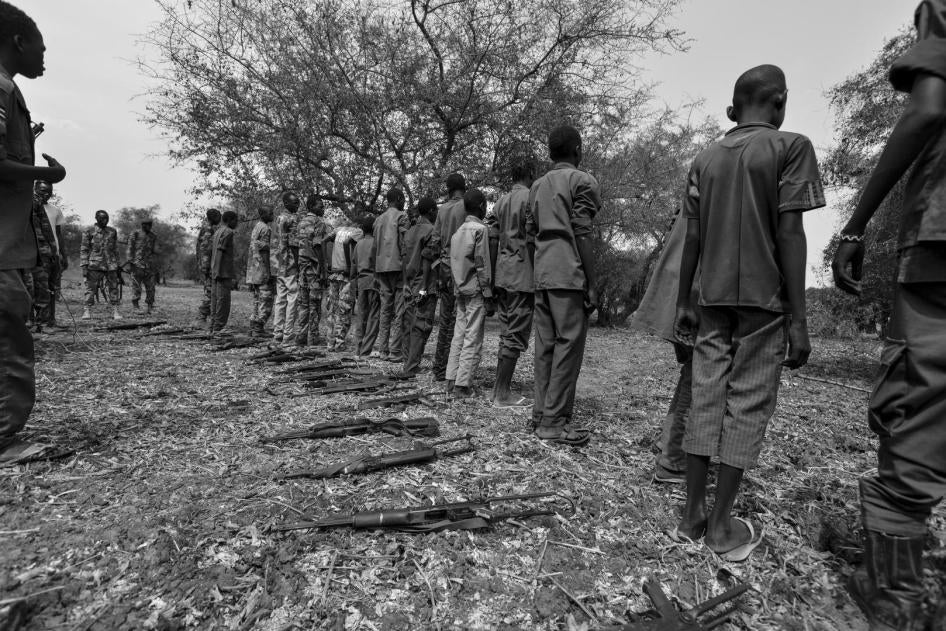“Terrorized, killed, raped and starving”: this is how UN human rights experts recently described the experiences of civilians in South Sudan. Multiple investigations have found that warring parties are committing atrocities in South Sudan that amount to war crimes and crimes against humanity. The UN Security Council missed an opportunity this week to move forward with an embargo when the United States, which leads on the issue at the UN, chose to postpone the discussion until June.
An arms embargo should help reduce these unlawful attacks on civilians. At the very least it would send a message that the international community will not enable fighters, who have shown a complete disregard for the laws of war, easy access to weapons so they can rearm and commit further abuses.
Although it’s not the only factor, arms purchased since the conflict began are enabling abuses in South Sudan. The armed opposition has allegedly been resupplied with small arms and ammunition from Sudan’s government. Government forces have been able to procure new weapons such as attack helicopters that launched two rockets at a hospital in Kodok in July 2015, killing two people, forcing medical staff to flee, and leaving scores of patients without life-saving care. The government also purchased amphibious vehicles like the ones used in Unity state to chase civilians into swamps in a deliberate effort to kill, displace and terrify people so they wouldn’t return home.
This week’s delay at the Security Council can’t be justified by improved behavior by the warring parties. Since the August 2015 peace agreement, attacks by armed groups have continued and spread to new areas. The US decision to delay action may be over worries about disrupting political progress - opposition leader Riek Machar is due to take his seat as a part of the transitional government by mid-April. But political developments have not curbed abuses against South Sudan's civilians.
There’s plenty of support for an arms embargo. Ambassadors for Angola, Senegal, Spain, France, New Zealand, the UK – all Security Council members – have indicated support. Other African countries, including the Ethiopians, have done the same. With this kind of African support, both Russia and China could have been convinced to defer to the region and impose the embargo. Both the European Union and the African Union Peace and Security Council have asked the UN Security Council to take this step. The UN’s own Panel of Experts on South Sudan and its Office of the High Commissioner for Human Rights also made similar appeals.
If put to a vote today, there might be a fight, but an arms embargo would likely pass in the Security Council. It’s a shame the United States didn’t give it a chance.









